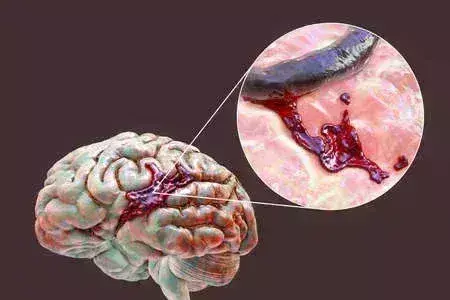- Home
- Medical news & Guidelines
- Anesthesiology
- Cardiology and CTVS
- Critical Care
- Dentistry
- Dermatology
- Diabetes and Endocrinology
- ENT
- Gastroenterology
- Medicine
- Nephrology
- Neurology
- Obstretics-Gynaecology
- Oncology
- Ophthalmology
- Orthopaedics
- Pediatrics-Neonatology
- Psychiatry
- Pulmonology
- Radiology
- Surgery
- Urology
- Laboratory Medicine
- Diet
- Nursing
- Paramedical
- Physiotherapy
- Health news
- Fact Check
- Bone Health Fact Check
- Brain Health Fact Check
- Cancer Related Fact Check
- Child Care Fact Check
- Dental and oral health fact check
- Diabetes and metabolic health fact check
- Diet and Nutrition Fact Check
- Eye and ENT Care Fact Check
- Fitness fact check
- Gut health fact check
- Heart health fact check
- Kidney health fact check
- Medical education fact check
- Men's health fact check
- Respiratory fact check
- Skin and hair care fact check
- Vaccine and Immunization fact check
- Women's health fact check
- AYUSH
- State News
- Andaman and Nicobar Islands
- Andhra Pradesh
- Arunachal Pradesh
- Assam
- Bihar
- Chandigarh
- Chattisgarh
- Dadra and Nagar Haveli
- Daman and Diu
- Delhi
- Goa
- Gujarat
- Haryana
- Himachal Pradesh
- Jammu & Kashmir
- Jharkhand
- Karnataka
- Kerala
- Ladakh
- Lakshadweep
- Madhya Pradesh
- Maharashtra
- Manipur
- Meghalaya
- Mizoram
- Nagaland
- Odisha
- Puducherry
- Punjab
- Rajasthan
- Sikkim
- Tamil Nadu
- Telangana
- Tripura
- Uttar Pradesh
- Uttrakhand
- West Bengal
- Medical Education
- Industry
JAMA Study Identifies New Risk Factors For Poor Outcomes in ICH

Intracerebral hemorrhage (ICH) is the subtype of stroke with the highest disability rate among survivors. ICH has a 40% to 50% mortality rate within 30 days. A recent study identified a number of novel risk factors and provided additional data supporting associations for established risk factors in estimating outcomes after ICH, which may be used both clinically and in clinical trial design. The study findings were published in the JAMA Network Open on March 15, 2022.
The ICH prognostic score includes the following factors associated with mortality at 30 days after ICH: age older than 80 years, lower admission Glasgow Coma Scale (GCS) score, ICH volume greater than 30 cm3, intraventricular hemorrhage, and infratentorial ICH.
The FUNC score identifies age, GCS score, ICH location, ICH volume, and pre-ICH cognitive impairment as factors associated with disability at 90 days after ICH. To further explore the additional factors associated with outcomes after ICH, Dr Daniel Woo and his team conducted a study to assess primary patient risk factors associated with mortality and neurologic disability 3 months after ICH in a large, racially and ethnically balanced cohort.
In this study, the researchers used data from 2568 White, Black, and Hispanic patients with spontaneous ICH from the Ethnic/Racial Variations of Intracerebral Hemorrhage (ERICH) study cohort. They examined patient demographic and clinical characteristics as well as hospital event and imaging variables. They specifically analyzed elements included in the ICH score. They screened individual characteristics for association with 3-month outcome of neurologic disability or mortality, as assessed by a modified Rankin Scale (mRS) score of 4 or greater vs 3 or less under a logistic regression model. They further tested 25 characteristics in the final model, which minimized the Akaike information criterion.
Key findings of the study:
- Upon final logistic model, they found a significantly higher area under the receiver operating characteristics curve (C = 0.88) compared with ICH score alone (C = 0.76; P < .001).
- Other factors associated with poor outcomes were larger ICH volume (OR, 2.74), lobar location (OR, 0.22), older age (OR per 1-year increase, 1.04) and pre-ICH mRS score (OR, 1.62).
- They further noted that the presence of infection independently predicted a 90-day mRS score of 3 or less (odds ratio [OR], 1.85).
The authors concluded, "The findings of this cohort study validate ICH score elements and suggest additional baseline and interim patient characteristics were associated with variation in 3-month outcome."
They further added, "The ERICH study is exploring whether these results will enable the development of a more comprehensive ICH recovery score that accounts for different races and ethnicities with the increased prognostic ability".
In an accompanying editorial, Dr J. Claude Hemphill III wrote, "This study by Woo et al assessing risk factors associated with outcomes should be used to define a shift in the way we approach prognosing ICH outcome. The purpose of providing a prognosis for ICH outcomes should be the same as the purpose of a clinical trial: trying to identify treatments that can help patients. We believe that we are just getting started".
For further information:
DOI:10.1001/jamanetworkopen.2022.1103
Keywords:
Intracerebral hemorrhage, poor outcomes, ICH Risk factors, ICH, ERICH study, Glasgow Coma Scale, FUNC score, Neurologic disability, modified Rankin Scale, JAMA Network Open.
Medical Dialogues Bureau consists of a team of passionate medical/scientific writers, led by doctors and healthcare researchers. Our team efforts to bring you updated and timely news about the important happenings of the medical and healthcare sector. Our editorial team can be reached at editorial@medicaldialogues.in.
Dr Kamal Kant Kohli-MBBS, DTCD- a chest specialist with more than 30 years of practice and a flair for writing clinical articles, Dr Kamal Kant Kohli joined Medical Dialogues as a Chief Editor of Medical News. Besides writing articles, as an editor, he proofreads and verifies all the medical content published on Medical Dialogues including those coming from journals, studies,medical conferences,guidelines etc. Email: drkohli@medicaldialogues.in. Contact no. 011-43720751


